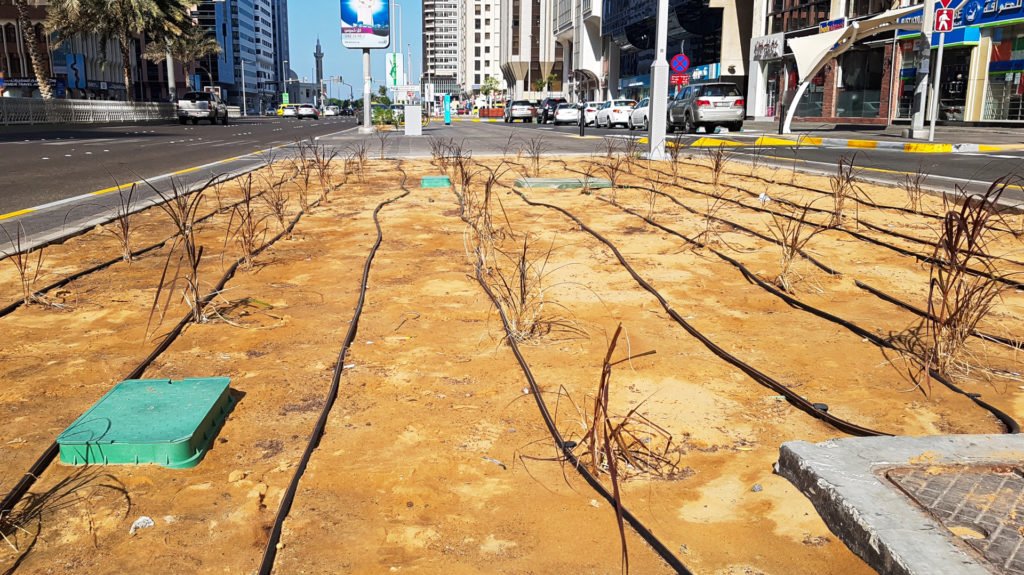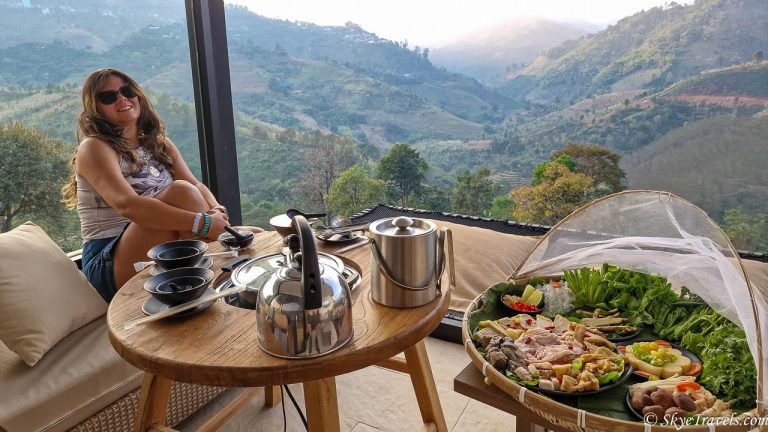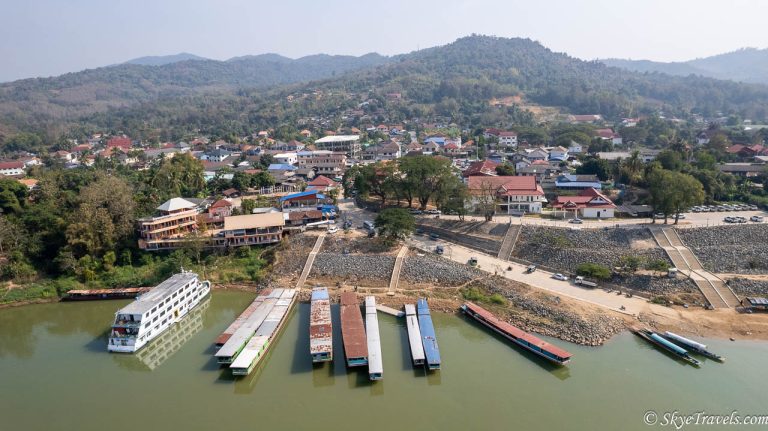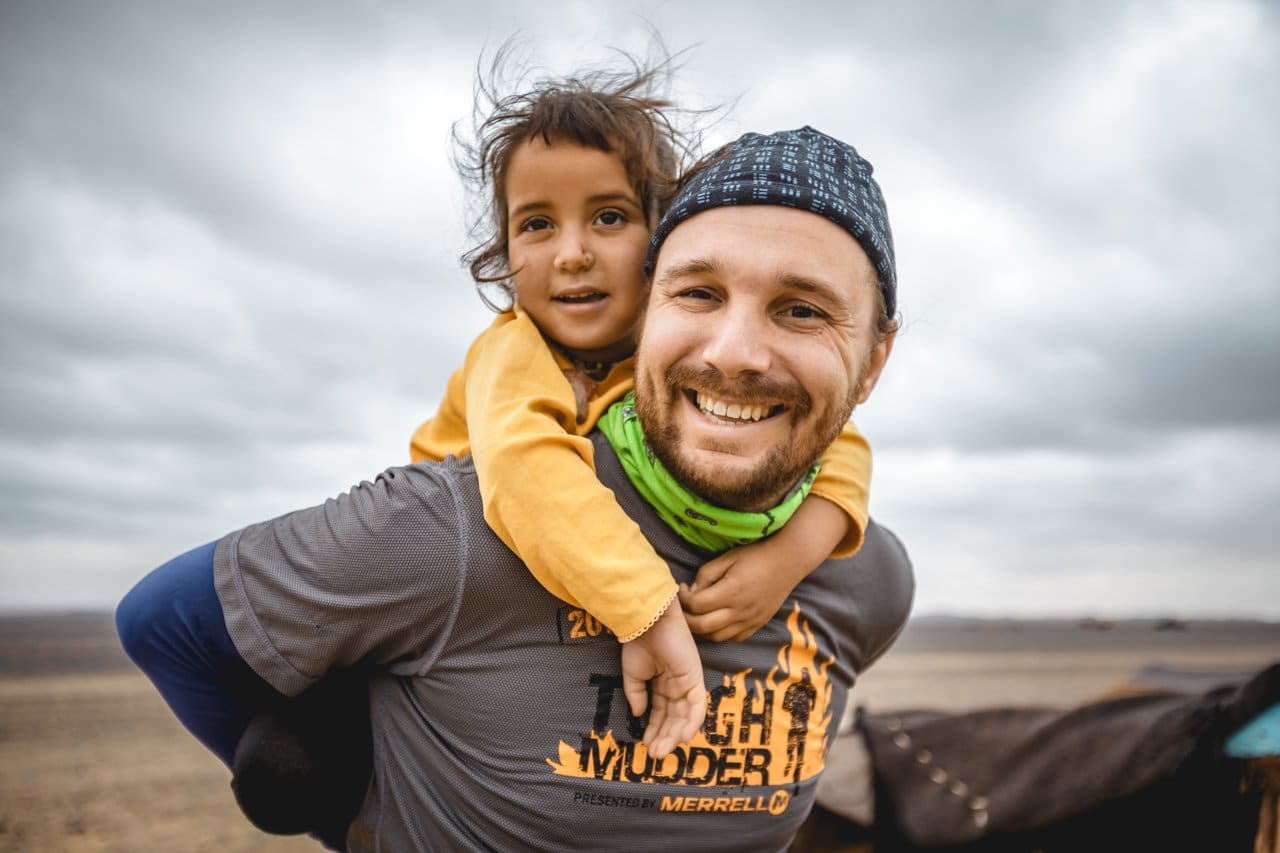I always thought Dubai was the capital city of the UAE, a small country to the north of Saudi Arabia known for its export of oil. Actually, the capital is Abu Dhabi where I spent most of my time while I was in the country.
I was invited to Abu Dhabi by Louise, a fellow traveler I’ve met up with several times in my travels. She’s originally from the Philippines, but now resides in Abu Dhabi. While I was on hand to help her with her first visit to Europe last year, she helped me with my first first visit to the Middle East.
My week adventure in the UAE extended into nearly two weeks when it became apparent there was just too much to see in so little time. I went to most of the key attractions, ran into a couple of old friends and was able to also get some work done on the blog. It would seem like the country was built as a true Utopian paradise. However, not everything was perfect. Here are some of the observations I made.
UAE Architecture is Miraculous
My first impression of Abu Dhabi was how similar it was to Las Vegas. Huge, fancy buildings in the middle of a desert. The design is closer to what I saw in Thailand and Malaysia. There’s one huge difference though. In the UAE, everything is literally built on sand. Unless you consider the palm islands in Dubai, which are man-made islands built on the water. Walking down the street, you can see missing paving stones where the desert sand is visible underneath. When you also consider that the world’s tallest building is constructed on this same sand, it puts it into context. I was constant baffled at how many millions of tons of concrete must have been used here.
In order to grow plants, they have watering hoses everywhere. Essentially, the plants are forced to grow into the sand and then watered constantly to keep them alive. With temperatures rising above 50°c, that’s no easy feat. Yet trees, gardens and parks exist all over the city, and many of them are extremely opulent.
Abu Dhabi and Dubai are Massive
So far the only two cities I’ve been to are Abu Dhabi and Dubai, which are definitely the two biggest cities in the country. The highway between the cities has six lanes in each direction, and highways within the cities are sometimes just as big. Most of the main roads through the towns have at least four lanes each way. The average building side seems to be 10 stories, and 20 or 30 aren’t anything special when they’re dwarfed by buildings next to them rising 50 stories. Of course, the 163-story Burj Khalifa puts them all to shame.
Despite all the highways, traffic is still thick during rush hour. Sidewalks are crowded and businesses are busy. When you go to the malls (which are similarly massive and located all over the city), they are usually crowded, especially in the evening. I’ve been told the malls are where everyone goes in the summer to escape from that insufferable heat.
The Population Comes from Everywhere
I was amazed when I found out that 90% of the country are foreigners and immigrants. You can see this as you walk around on the streets. The locals do stand out in their customary attire, the white robe and white or checkered headdress. The women are dressed in a black robe, with only their face and hands showing. While the foreigners dress differently, they still have to respect the strict dress code. Women need to have arms, legs and hair covered, and men have their shoulders and usually their knees covered. While I was able to walk around in a t-shirt and shorts while I was in the country, I wouldn’t have made it into the Grand Mosque if I hadn’t been wearing pants, and I was turned away from the Grand Palace when I forgot to wear my pants there.
One blessing was that nearly everything in the country was written in both English and Arabic. This allowed me to get around easily, make purchases at the shops and essentially communicate with almost anyone. There were only a couple people in the country I ran into who didn’t speak English, which was probably the lowest percentage I’ve found outside a native-English country.
Things are REALLY Expensive
Simply put, the UAE is not your destination as a budget traveler, unless you’re coming for a short layover. The one (1) hostel in Abu Dhabi is a whopping $25 a night when you factor in the three additional taxes you have to pay. That officially makes it the most expensive city I’ve been to for accommodations, beating London, Stockholm and Copenhagen. Buying at supermarkets isn’t much better. Most items cost 2-3 times more than “expensive” countries like the UK. There are ways to get around this, but they’re not easy. When I didn’t have meals I was invited to, my options were walking the 8km to the Carrefour to find discounted items, or subsisting on the $0.50 samosas at the local market.
The one item I found was really cheap was the gas. Go figure! A single tank of gas ran for about $16. Of course, the car rental itself wasn’t cheap.
Censorship is Rampant
Along with the dress code, many other things in the country were censored. I found a Borders Bookstore in one of the malls, but the selection of books was pitiful. About half a dozen, shoulder-high bookshelves were all they had to show. The rest of the huge store was filled with toys and games. Victoria Secret was another store where the censorship was glaringly obvious. Not that I ever go there, but it caught my attention as I walked by that the usual bikini models were replaced with simple close-ups of female faces. The internet is also highly censored, and Whatsapp Calls are impossible. I was shocked to even find the Couchsurfing website blocked!
Infrastructure is Lacking
As developed as the country is, the basic infrastructure seemed to be severely lacking. The most noticeable aspect of this was the internet. It was abysmal. When I did have free internet in hostels or the Dubai Mall, it was hardly fast enough to send emails, let alone upload photos. The rest of the city didn’t have free internet, not even Starbucks! If you had a UAE phone number, you could get wifi at some locations, but the SIM cards here are just as expensive as everything else. The only time I had good internet was at the Airbnb I stayed at my first few days in Abu Dhabi, whose Indian host appeared to be quite well off.
Other basic features were notably missing. In malls, things like benches and bathrooms were in short supply. Outside of the fancy locations, the bathrooms more likely than not were missing toilet seats and paper. That’s nothing I wouldn’t expect from the average SE Asian city, but not what I expected here with all the lavishness elsewhere in the city.
Part of the problem could be that the city is still under development. Verily, there are roads all over the city which simply dead-end, bridges across the islands which aren’t open yet, and many other things which just aren’t completed. But even in the places that are mostly finished, like the Abu Dhabi World Trade Center Mall, things were missing all over the place like panels on the wall, doors, etc. It was hard to tell if the place was under construction or had been degenerating for years.
Locals Live in Luxury
In contrast to how travelers and expats struggle to pay their way here, locals live a life of luxury where hardly anything isn’t provided for. Healthcare, education and other necessities are all free.
Weddings and families are interesting. Emirati men get about $20k when they marry an Emirati woman. They are not bound to marry a local, but women are bound to marry an Emirati man for their first marriage.
An average local will have 3-4 cars, and a household of three might have 10 cars in their massive garage. Houses are just as fancy and expensive. In a street magazine listing homes for sale, the prices were staggering. Several million for a house was an average price. However, I’m told the government will help with most of that.
Speaking of making money, foreigners are not allowed to have their own business here. Instead, they must open the business in the name of a local. As expats outnumber the locals nearly 10 to 1, Emirati men have 10-20 businesses each, all of which they collect royalties and fees from.
I do have to make one clarification when I say locals. These observations specifically apply to Abu Dhabi and Dubai. I’m told the rest of the country has yet to rise higher than third-world conditions, with dirt roads and sporadic electricity. It makes for the largest disparity within the population I’ve ever seen. Hence, the culture shock.
There’s Very Little Crime
Probably the biggest surprise I had in the UAE was the lack of crime. Overall, the UAE is a very safe country. Friends here would leave their purse, phone or wallet on a table unattended for an hour or two and still find it there when they returned. Penalties for violating the laws in the country are severe and strictly enforced. Some areas, like traffic laws, seem to be a bit more lax. If the posted speed limit is 120 km/h, other signs will say the maximum speed is 140, and yet some are going even faster than that.
Another big culture difference I saw was men holding hands all over the city. My first assumption was incorrect, as homosexuality is illegal in the UAE. Men holding hands is commonplace as a simple matter of fraternity.
International Stores are Everywhere
In most countries, I’m overwhelmed by the number of American stores and restaurants. The UAE took that to a whole new level. It was the first time I had seen restaurants like Fatburger, The Rainforest Cafe, Fuddruckers and many more in my travels. Some stores I had seen in other countries, like Johnny Rockets, Nandos, Coldstone, Shake Shack, Wendy’s, were also available throughout the cities. But it’s not just American stores. The number one Filipino fast food store was in the Dubai Mall. British, French, Mexican and plenty more countries had restaurants and stores throughout the malls. Basically, it’s an international playground for companies, as long as they are set up under Emirati men.
Religion is Everywhere
Religion is a huge factor in the culture. While at the Grand Mosque, I finally learned why the sing-song Muslim calls were made from bullhorns atop mosques several times a day. They are for the Salah, the five prayer times of the day, which are dawn, midday, latest part of the afternoon, sunset, and between sunset and midnight. It’s almost impossible for a Muslim not to be able to make his way to a Mosque for the prayers, as Abu Dhabi alone has over 1000 mosques and there are close to 5000 in the UAE. However, the guide at the Grand Mosque described a mosque as simply a place of worship. If a Muslim in the desert faced Mecca and began to do his prayers there, he was worshiping and that spot became a mosque for the time of his prayers. I can’t find that definition anywhere, but it’s an interesting concept.
Summary
Simply but, the UAE blew me away. Do keep in mind that I only went to Abu Dhabi and Dubai, so my observations primarily apply to those two cities.
Would I recommend others to visit this country? Absolutely! If you’re on a budget, you might want to rethink your itinerary or consider a short stay, but don’t put it off completely.
The 2020 Dubai Expo is coming up, and the city is supposed to be “complete.” I plan to come back then to see the improvements. Perhaps you’d like to join me.
Resources
- Transportation
Find the best flights to the UAE on Skyscanner. Read my tips on how to find the cheapest flights.
- Lodging
Find great deals on hotels and hostels with Agoda. Read my guide on whether you should book ahead at a hostel.
If you’re traveling with more than one person, I’d recommend using Airbnb. Some locations can be fantastic.
Unfortunately the Couchsurfing website is blocked in the UAE, so that’s not an option here.
Please note: Skyscanner, Agoda and Airbnb are affiliate links, and using them here will help to support me financially in my travels.
This post may contain affiliate links. These links help give me the wherewithal to continue traveling at no additional cost to you. For more information, click here.















2 Comments
I had a stopover in Abu Dhabi while on the way from the UK and I pretty much reached the same conclusion as your about this city and country as a whole. It’s by far the oddest place I’ve visited and everything is at an extreme.
I think “odd” describes it best! It’s not that I didn’t enjoy it, but it’s just so different.